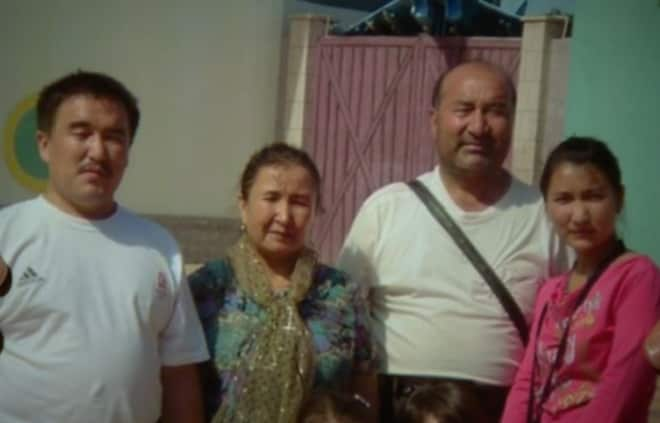Sydney woman Fatimah Abdulgahfur is missing her entire family.
"I cannot describe it, the words or any language, there is no words to describe the feeling of not knowing ... there are no words,” she tells SBS News.
The news this week that highly classified to the public is small comfort for the 39-year-old.

Sydney woman Fatimah Abdulgahfur is missing her entire family. Source: SBS News
When Fatimah last spoke to SBS News in February, she believed her father and brother were inside the internment camps and her mother and sister were under house arrest.
She hopes international governments will now be prompted to act.
"This shows hard evidence that ethnic cleansing and cultural genocide … in whatever the form, is happening, hard written evidence.
“I hope governments will take strong action to stop this genocide, to close the camps and free the Uighur people.”
What's in the China cables?
The leak revealed shocking details of an elaborate scoring system that grades detainees in the Xinjiang camps on how well they speak the dominant Mandarin language, memorise ideology and adhere to strict rules on everything down to using the toilet.
It also detailed a series of security measures such as watchtowers, video surveillance and double-locked doors to “prevent escapes”.
The Chinese embassy in the UK has stated the documents are “pure fabrication and fake news” despite confirmation of their authenticity by several experts as well as corroboration from former detainees.
The statement also said that religious freedom and the personal freedom of detainees was "fully respected" in Xinjiang.

Sydney woman Fatimah Abdulgahfur doesn't know the whereabouts of her entire family. Source: SBS News
The China cables follow leaks to the New York Times earlier this month of documents which reveal how demands from high-level officials, including Chinese President Xi Jinping, provided the impetus for the internment campaign.
New prison fears raised
Since Fatimah last spoke to SBS News she has heard from contacts in Xinjiang that her father has been sentenced to 10 years in prison.
She believes it is part of a concerted effort by Chinese authorities to clear space in the internment camps to move new people in.
"I have no idea why my father was imprisoned, he did not break any law, he was just a normal retired person, he had been retired for 10 years and I have no idea why," she says.
Michael Clarke, an associate professor from ANU whose work covers Uighur politics and ethnic separatism, says this practice could well be happening.
“What we have seen from the research is some of the detention centres are at capacity and authorities may be sentencing people in the camps to ‘normal’ prisons so they can bring in new people," he said.
“There is evidence to suggest that in relation to particular categories of people - intellectuals, religious scholars or people who have travelled overseas, for example - they could be subjected to particularly harsh jail terms.”

Fatimah believes her father is now in prison. Source: Supplied
Fatimah says her father was a driver for a Chinese tourism organisation and then became a restaurant owner before he retired.
She arrived in Australia in December 2017 and does not know where the rest of her family are.
“I have a lot of survival guilt,” she says.
“I feel like I don't deserve [my life here] in many ways and the only thing I can do for my family is to keep speaking out.”
Cables should ‘spur action’
Canberra-based Uighur activist Nurgul Sawut, who is an Oceania director for , says she was pleased to see the release of the leaked documents as it confirmed what the Uighur community had been hearing for several years.
She hopes this will mean Western democracies will rethink their business relationships with China and show concern.
“This is a turning point in our campaign, what is happening is a crime,” she said.
“Countries need to draw a red line, and be clear about what is not okay.”

Canberra-based Uighur activist Nurgul Sarwat. Source: SBS News
The UN estimates at least one million people, mostly Muslim Uighurs, have been locked up in internment camps in Xinjiang.
Fatimah says the Uighur expatriate community in Australia will not give up their campaign until their families in Xinjiang are finally free.
“I believe one day I will meet my parents again, I will see my sister and brother again," she says.
“I don’t know when but I am hopeful.”



